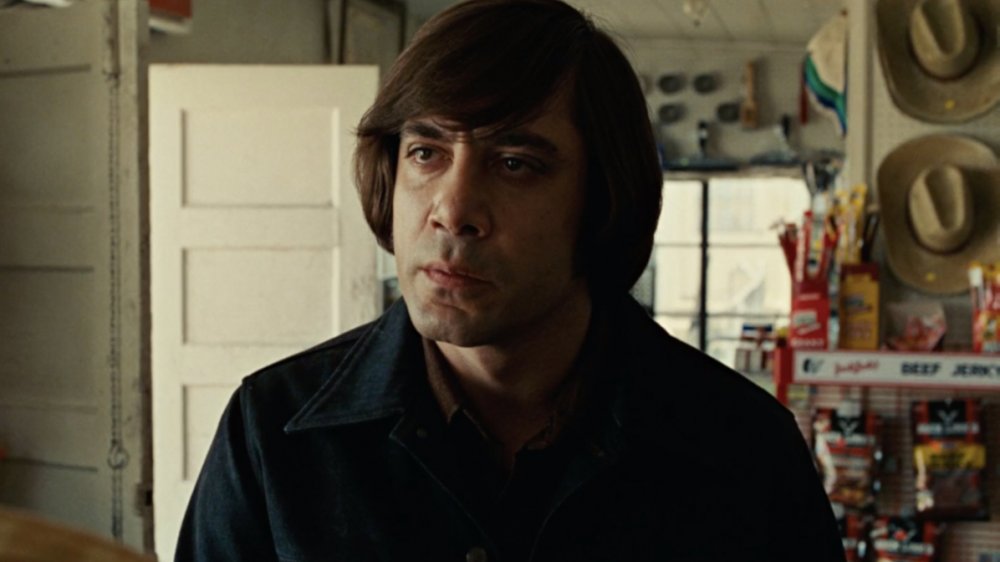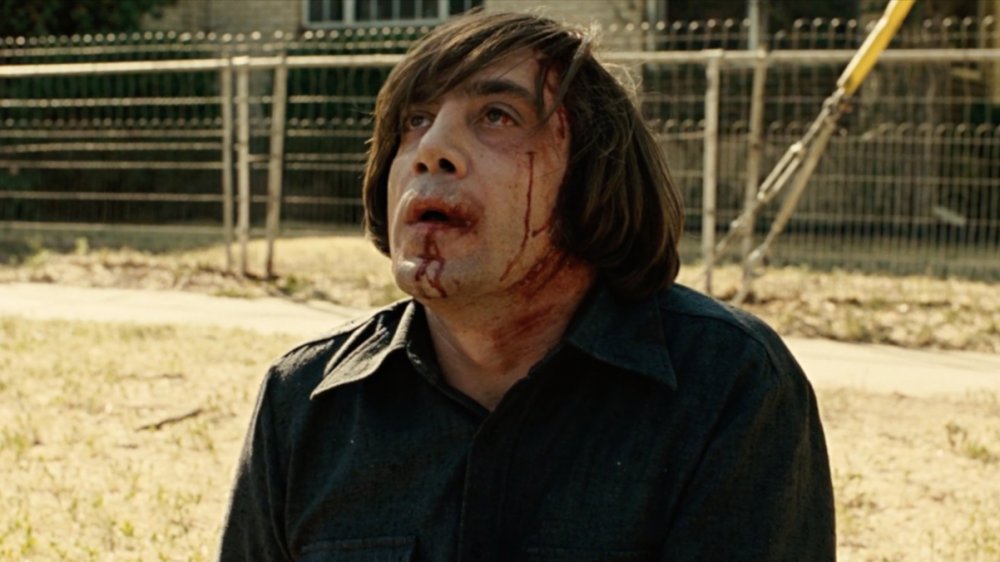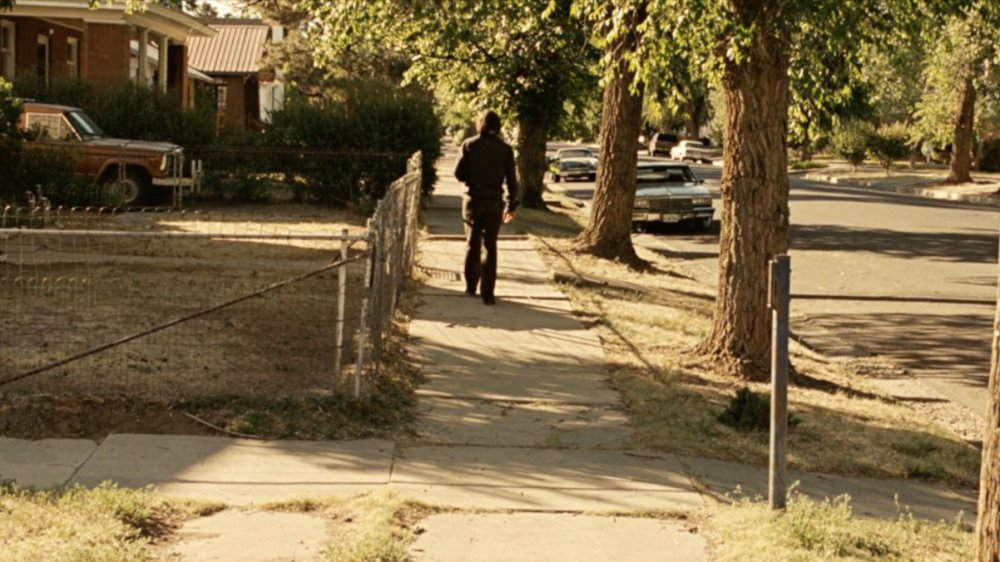Why Chigurh's Fate In No Country For Old Men Means More Than You Think
2007's No Country For Old Men is an expertly crafted crime movie, but it's also more than that. Joel and Ethan Coen's movies are always more thoughtful than they might seem at first glance, and this adaptation of a Cormac McCarthy novel is no exception. No Country For Old Men balances its crime narrative, about a hunter who stumbles on a bag full of drug money and is pursued by a relentless killer, with philosophical musings on aging and morality, cut with a streak of absurdist humor.
Josh Brolin is great as Llewelyn Moss, the hunter who finds the money, and Tommy Lee Jones gives a career-defining performance as the aging Sheriff Bell, who tries in vain to make sense of it all. But the most popular character in the film is Javier Bardem as the eccentric hitman Anton Chigurh, with his weird haircut and his penchant for flipping a coin to decide whether to kill people. Bardem won the Academy Award for Best Supporting Actor for his performance as Chigurh, which is all the more impressive since the character is a nearly emotionless embodiment of evil. Elements of the movie's ending have raised questions among fans, and what happens to Chigurh is one of the most discussed.
Fate in the form of a station wagon
At the end of the movie, after Llewelyn Moss is dead and Sheriff Bell has come up short in trying to find Chigurh, the killer surprises Moss' wife Carla Jean (Kelly Macdonald) and explains to her that he promised Llewelyn he'd kill her because Llewelyn refused to give up the money in return for her life. He asks her to call a coin toss, to let fate determine if she lives or dies, as he's previously done with other characters. Carla Jean, however, refuses to make the call, forcing Chigurh to make his own choice (presumably to kill her, but it happens off screen). As he drives away afterward, Chigurh's car is suddenly hit at high speed by another vehicle. Bloody and with an awful-looking compound fracture in his left arm, Chigurh gives a young boy money in exchange for a shirt and silence when the police arrive. Wearing the kid's shirt as a sling, Chigurh walks off down the sidewalk, never to be seen again.
What a strange ending, you might say, for as destructive a character as Anton Chigurh. Does he get away, or does he get caught as he flees on foot covered in blood? Or does he succumb to his wounds, which look pretty serious? Just as Sheriff Bell fails to get all the answers he'd like to have, so the audience is left in much the same position.
A deliberate anti-climax
Reddit user Arpus put forward the theory that the car that hits Chigurh is basically an agent of fate, punishing him for breaking his code by killing Carla Jean without a proper coin toss. As Arpus points out, Chigurh always seems to employ the coin flip when he's about to kill someone innocent, essentially letting fate decide. When Carla Jean won't go along with that plan, he presumably kills her anyway. Having broken the rules of the game, he no longer has the protection of fate (which was previously responsible for his almost supernatural ability to slip through the fingers of anyone pursuing him, like when Sheriff Bell is looking for him in that hotel room), and a random car smashes his arm just to make that point.
If you buy into this theory, it suddenly seems quite unlikely that he gets away after the scene ends. Ultimately, though, we don't find out because it doesn't matter. Whether Anton Chigurh lives or dies, gets away or goes to prison, other malevolent forces of fate will continue to act on the world, implying that safety and understanding are just illusions that we cling to. Sheriff Bell, who retires after this harrowing case, would most likely agree.


